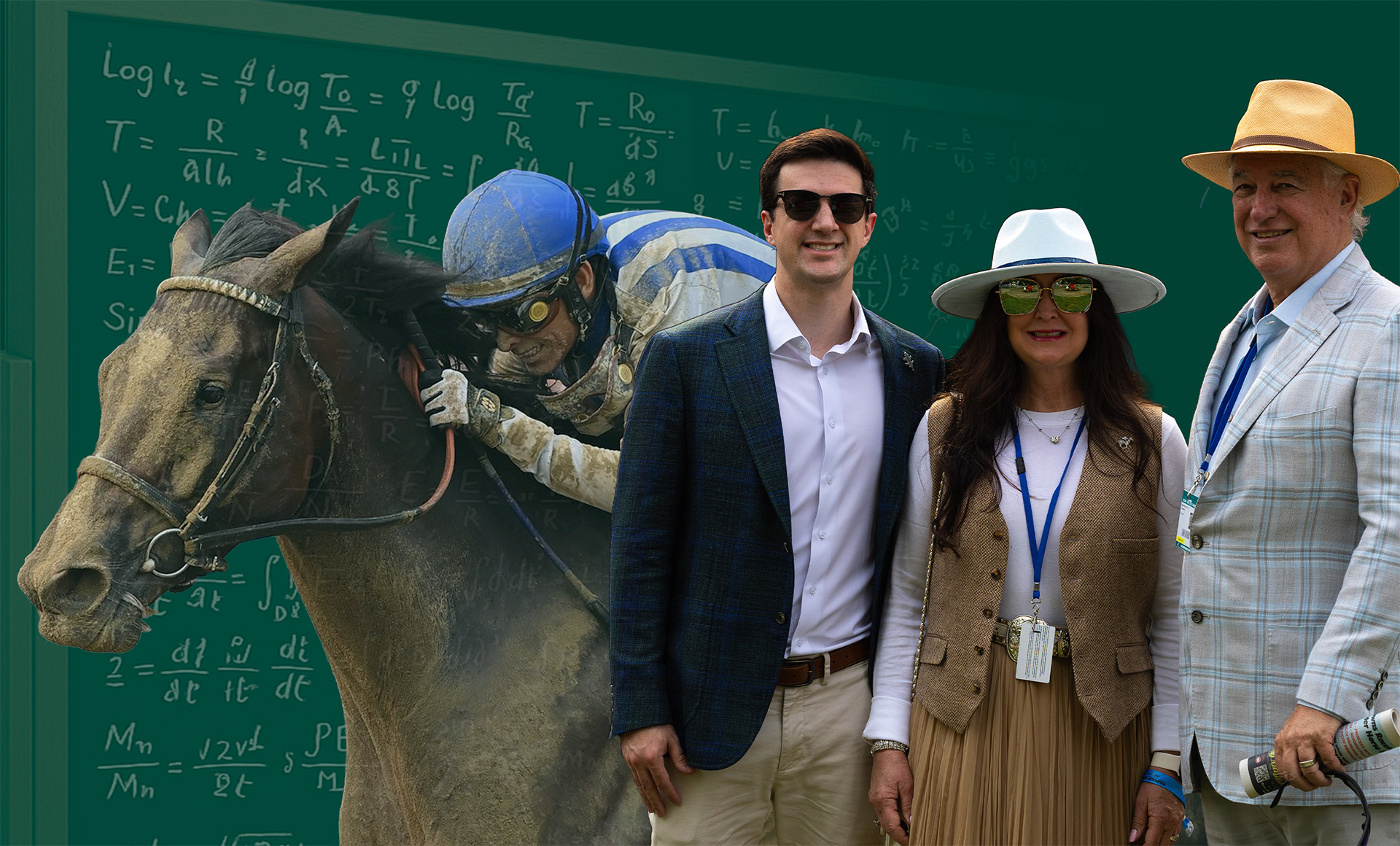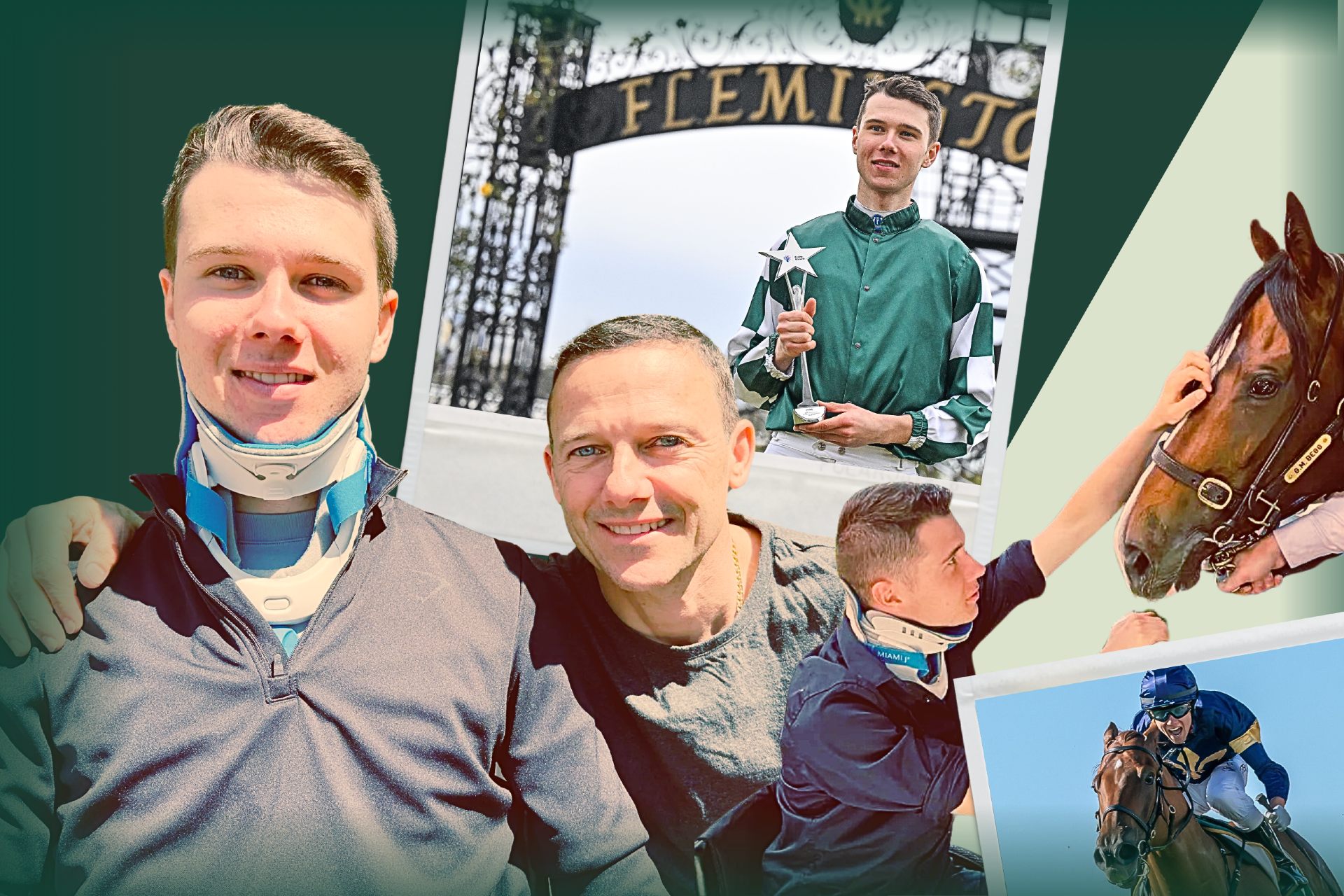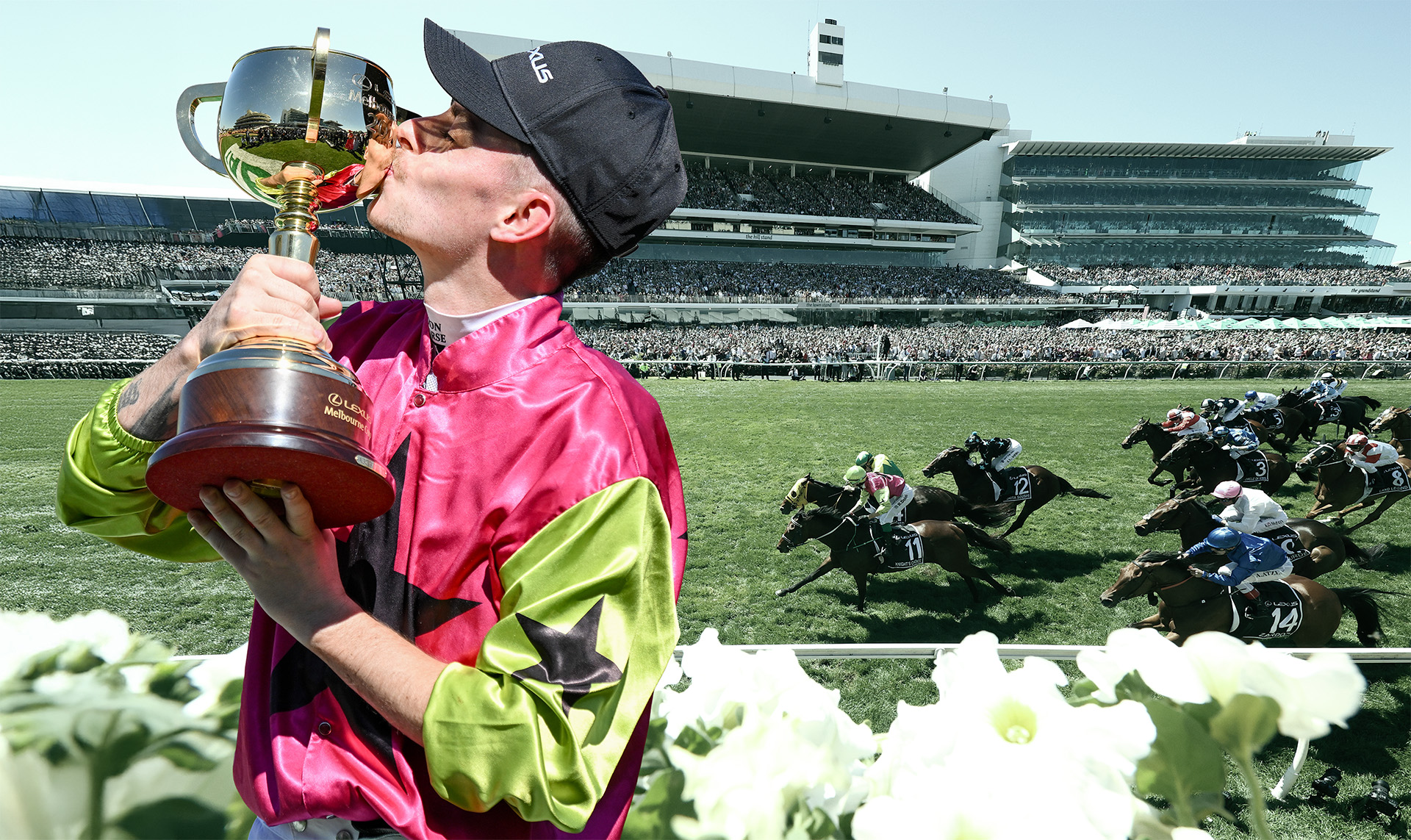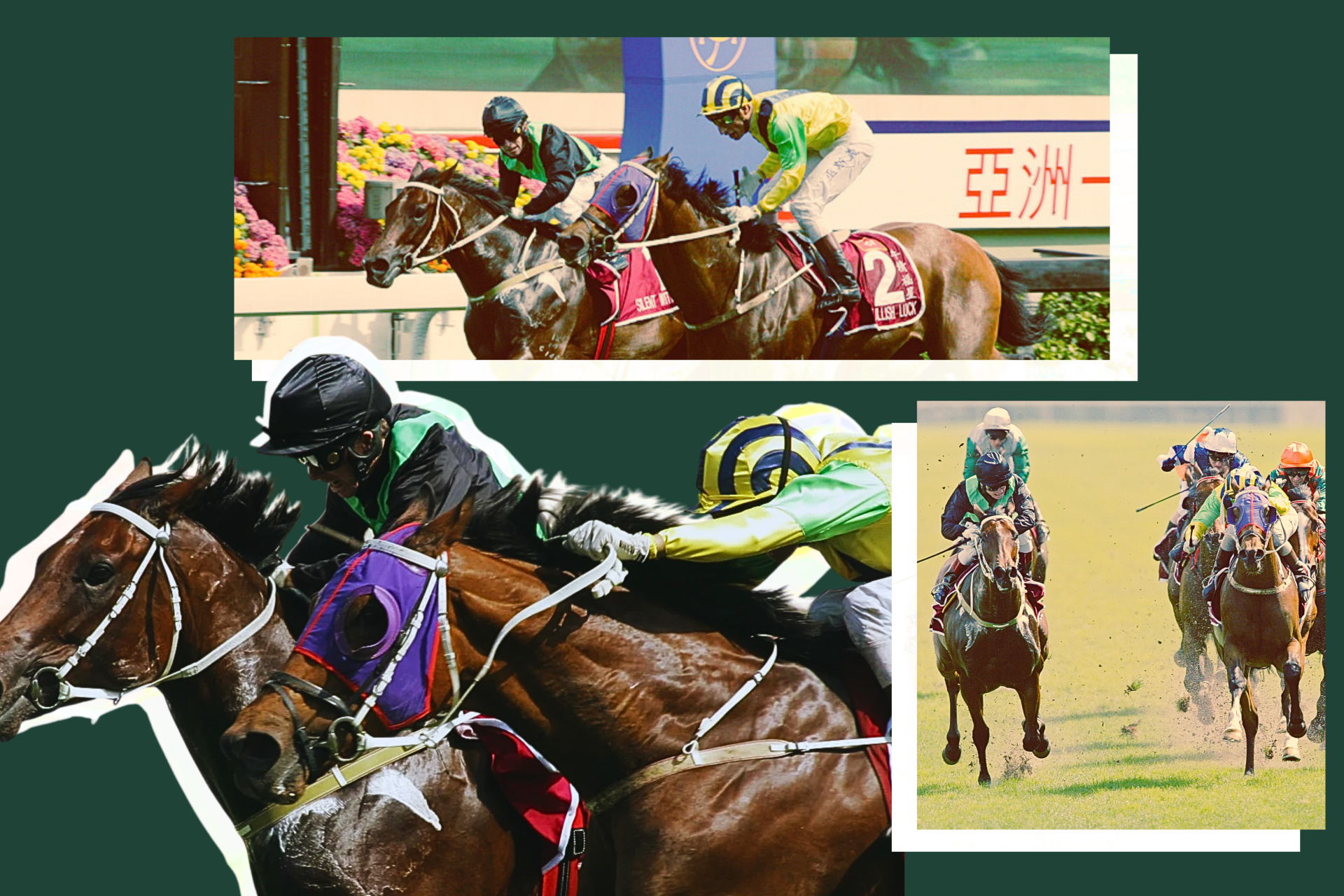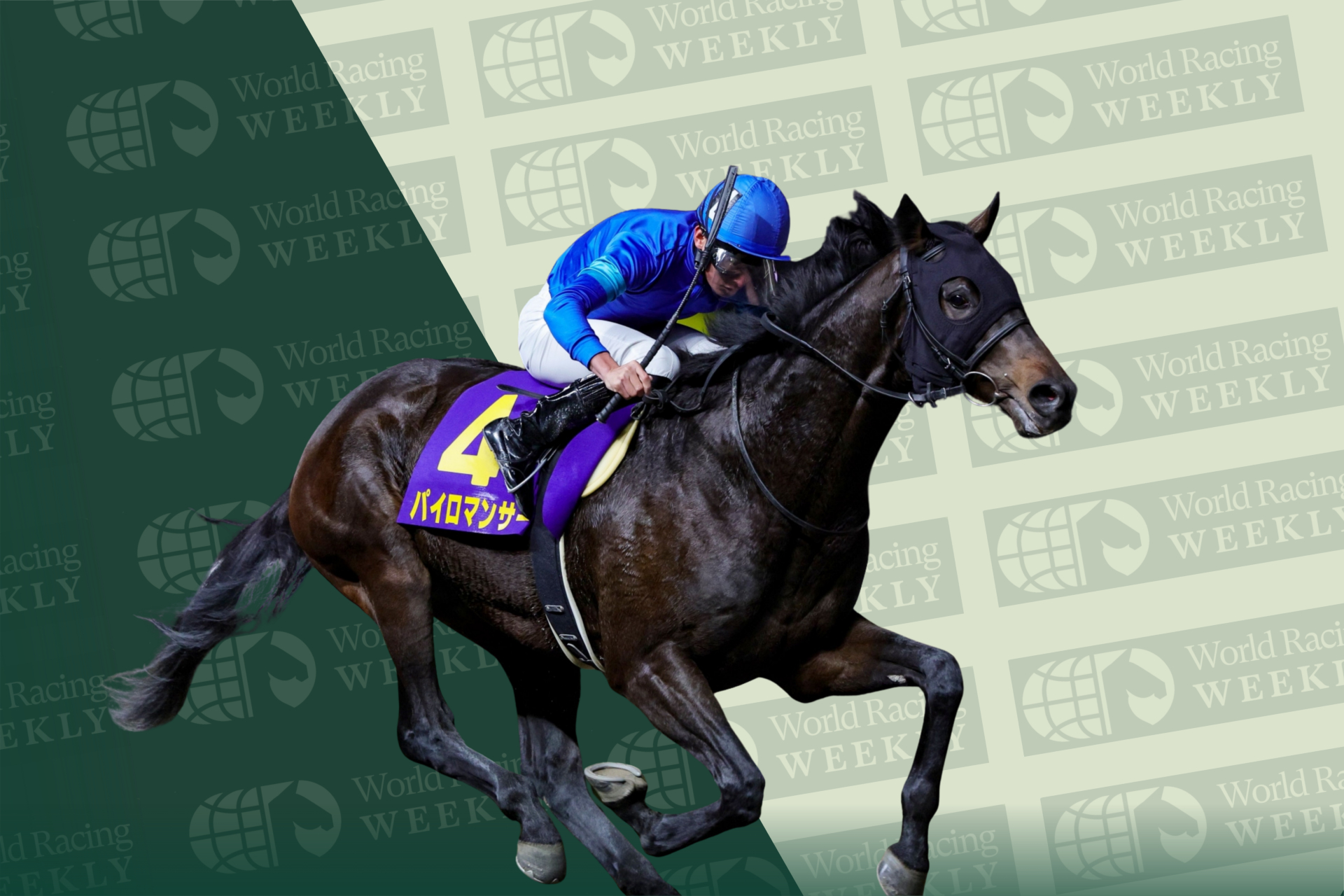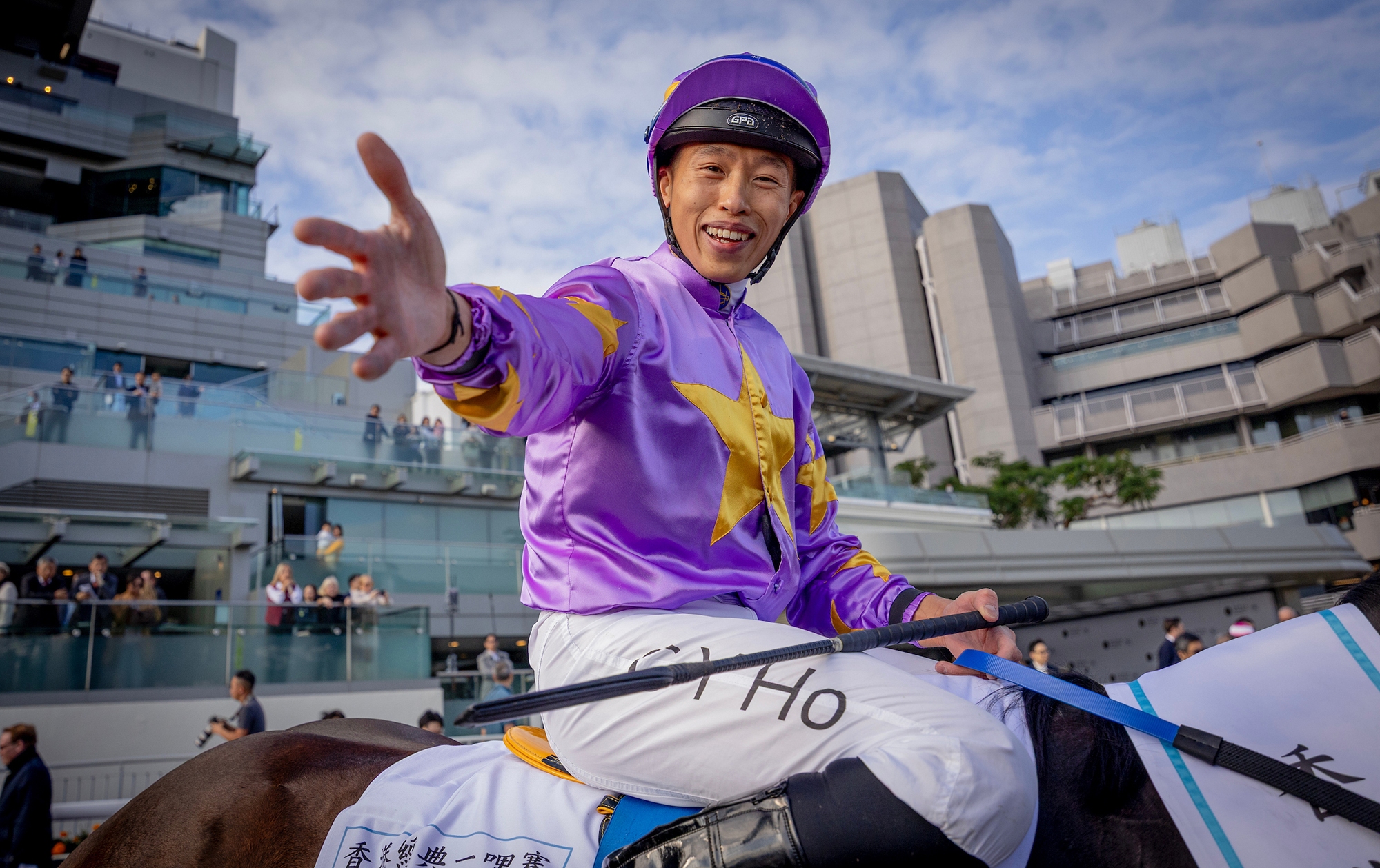It’s a week before the Breeders’ Cup Classic and such is the interest in the contenders, television broadcasts are showing trackwork live.
Jim and Dana Bernhard are only relatively new to the thoroughbred industry, but they have a chance. Geaux Rocket Ride is their first horse, a US$350,000 birthday gift from Jim to Dana. Jim got into horses because Dana loves them.
As Geaux Rocket Ride spins around the track with his owners watching it from another city, the horse suddenly breaks down. Despite the best efforts of vets to tend to a leg injury, Geaux Rocket Ride is euthanised a few days later.
The Bernhards are, understandably, devastated.
Also watching the track gallop in real time is a real-life rocket scientist, who has spent the last two years working at SpaceX, the Elon Musk-controlled private aerospace company based in Los Angeles.
Ben Bernhard’s interest in horse racing had been piqued by his parents’ involvement, and “Rocket” had naturally been a favourite. It moved him to do something even more extraordinary than sitting in Mission Control and launching humans and other objects into space.
“I know exactly where I was and exactly how I felt,” Ben says of watching Geaux Rocket Ride’s injury on live television. “It was a really sad time.”
So, he quit SpaceX with a new mission to help revolutionise the thoroughbred industry.
The Bernhard family will already have a slice of history when their stayer, dirt specialist Parchment Party, becomes the first American-trained horse to run in the A$10 million Melbourne Cup at Flemington on Tuesday.
Australia’s great race has long been a cosmopolitan one, with winners coming from Ireland, Japan, France, Germany and the United Kingdom. Yet no horse from America has even attempted to run in the Melbourne Cup, let alone win it, until the Bernhards accepted a golden ticket with Parchment Party after his win in the Belmont Gold Cup.
Their 28-year-old son is ensuring everything the Bernhards do at Kentucky’s Pin Oak Stud, which they acquired after the death of legendary breeder Josephine Abercrombie, who died just shy of her 96th birthday, will have cutting edge science backing it.
The Melbourne Cup’s roll call of winning owners is long and vast, from sheikhs and casino tycoons to media moguls as well as school teachers and ordinary labourers. It’s hard to say if a rocket scientist has ever attempted to win the Cup, but here we are.
Ben Bernhard always had an ambition to work in the aerospace industry, and after studying electrical engineering and beginning a PhD in space engineering, he joined SpaceX. He could have any role at any given time on a number of projects, with clients often approaching the organisation about how to launch objects into orbit. He estimates he was the lead on about 10 different missions during his time with the company, working with astronauts and other clients who wanted to invest in different projects.
“It’s a super rewarding job, and also super stressful,” Bernhard tells Idol Horse.
“It makes it rewarding when you have successful launches. But that’s the most stressful part, when you’re in Mission Control, with this thing you’ve been working on for a year, and then it all comes together.”
But despite doing a job millions of people can only fantasise about, Bernhard felt another calling, a different purpose in which he could use his years of experience with technology and data for: horse welfare.
He agreed to join the family’s Pin Oak Stud as vice president and started his own company which began developing equine sensors.
“The more I got into it, I realised there are a lot of areas in horse racing which can be improved with technology, engineering, data science,” Bernhard said. “That’s where my speciality is. I decided to work full time and make those improvements.
“It’s quite the jump (to leave the aerospace industry). I thought about it for a long time. Looking back at it, I’m super happy I made the decision.”
Technology has gradually evolved within the horse racing industry over the last two decades, and many of the world’s biggest trainers and stud farms use it as an extra tool on top of traditional horsemanship.
Racing Victoria, the regulator in charge of the Melbourne Cup, has a hardline stance on all potential runners undergoing CT scans and then further PET scans before being cleared to run in the race that stops the nation.
The protocols have attracted criticism from the likes of Aidan O’Brien, but after a spate of deaths in the race, officials make no apologies about protecting the interests of the wider industry. No fatality has been recorded in the Melbourne Cup since the intense welfare checks were put in place.
Only a fortnight ago, the pre-post favourite for both the Cox Plate and Melbourne Cup was ruled out after scans showed a heightened risk of injury for Sir Delius. The horse’s trainers, Hall of Famer Gai Waterhouse and training partner Adrian Bott, decided to spell the entire.
Ironically, Bott has quietly been trialling Bernhard’s equine sensors on a string of his own horses, the only person so far in Australia to reach out to Pin Oak about their welfare initiative.
Bernhard’s company is part of a wider trial in America where 100 two-year-olds have their movements tracked in every morning exercise by a single sensor attached to their chest. The results are then reported each week and horses are categorised on the likelihood of an injury due to their movement pattern: either green, orange or red.
“Our biggest goal is try to prevent injuries in horses as much as we can,” Bernhard said. “The sensors are my biggest focus right now because they’re the technology that transfers most easily from the air space industry.
“The main idea of having those track an object and understand the movement of that object over time, all of that comes from the air space industry. I’m really trying to bring that into horse racing and use those sensors so we can better understand the movement of horses at a super fine detail.
“Once you understand the movement you can explore injury prevention and say, ‘this horse has been moving this way for this month’, and all of a sudden there’s a change. That could be an indicator of an injury.
“We’ve seen plenty of examples where we’ve picked something up and the horse may have a red flag. The early results we’ve seen from the study have been pretty good.”
Although he started his career before Bernhard developed his equine sensor program, Parchment Party has worn the indicators during training before the Melbourne Cup.
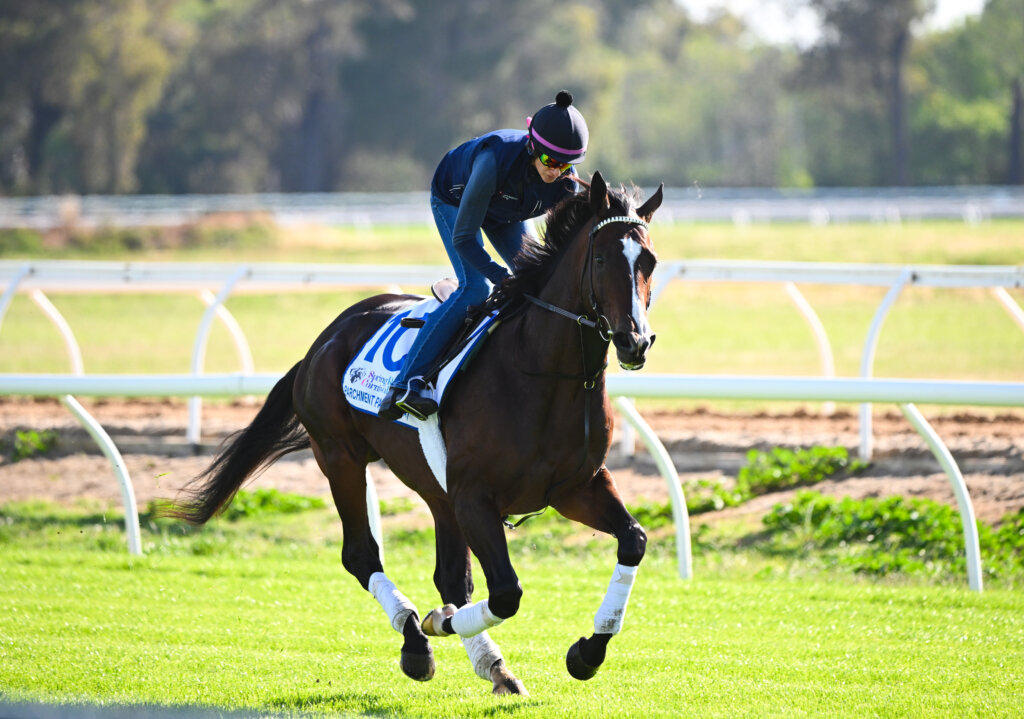
His travel to Australia was arduous. Given the United States doesn’t have a pre-export quarantine facility, the Bill Mott-prepared five-year-old had to fly from New York to Belgium, then be driven to the United Kingdom where he spent two weeks at Newmarket before the monumental flight to Melbourne.
“We had the September sale here and everyone we ran into was asking about the Melbourne Cup, the horse and what a journey it was going to be,” Pin Oak’s director of farm operations Michael Hardy says.
“Some of it was just interest and general candour, but I do think there’s definitely a real following for this horse now. It will be good to see if we can maybe plant the first flag and others do the same.
“It’s no surprise this horse has the quality. In his second race he came down the straight, was stuck in on the rail and he just bullied his way through the field to win the race. He’s just a fearless type of horse. I don’t know whether it gives confidence or it’s just a feather in our cap, but we know he won’t shy away from a gap in the Melbourne Cup.”
Says Mott: “We all know about (the Melbourne Cup), not that I’m a student of it. But we’ve all heard about it and know the importance of it over there.”
It might be considered almost impossible for an American horse to win Australia’s most famous race, but not many people gave a plucky Irish stayer named Vintage Crop a chance of triumphing in the Melbourne Cup either. Then there was Media Puzzle, Delta Blues, Americain, Dunaden, the list goes on. History is there to be made.
And watching back in the States at about midnight will be a rocket scientist who was so moved by an accident on live television he wanted to do something about it.
“When I talk to my old buddies at Space X, whenever they think about going to do something else, they say, ‘there’s no feeling like the one when you’re sitting in Mission Control and seeing your mission successfully launch’,” Bernhard says.
“I say, ‘well, watching your horse win is a similar feeling’.” ∎

